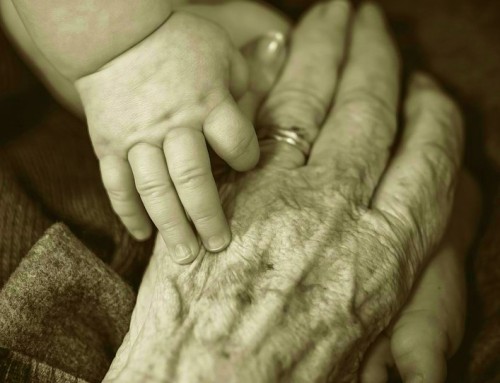How Bad Does It Have to Get Before I Can Go back to Court and Ask for Custody of My Kids?
When you get divorced, you agree on how child custody and parent-time. In other words, you agree where the kids live and how much time they spend with each parent.
And I say agree because about 98% of divorce cases are negotiated and agreed-on before trial.
Usually, things go pretty smoothly after divorce in the sense that each parent sticks with the parent-time schedule. You always get variations here and there (e.g., you switch weekends because something comes up), but it’s pretty consistent over time.
And then, in some situations, things don’t go well and a change needs to be made.
When changes need to be made, people come to our office to discuss their situation. They’re nervous because they know something is wrong, but they’re not sure how to proceed or if they have a chance to chance to change things.
At some point during these discussion, people will ask this question: How bad does it have to get before I can go back to court and ask for custody of my kids?
So, What’s the Answer?
There’s an old joke about lawyers that goes something like this: if you ask a lawyer a question, he’ll always tell you, “It depends.”
And that’s my answer: it depends.
It depends because changing custody is not a line in the sand sort of thing. Changing custody depends on what’s gone on since the divorce was finalized. It depends on your kids and what their needs are. It depends on you and how able you are to take on the responsibility of having custody. It depends on mental health, job stability, criminal history, housing, etc., etc., etc.
And because changing custody is so dependent on specific facts and individual analysis, we have to sit down with people and really pour over the whole situation in order to give them good guidance on how to move forward.
Despite what I just said, there are some general indicators that will let you know if you have a chance to change custody.
General Indicators
These are indicators based on situations in which our clients have successfully changed custody (they don’t guarantee custody will change though — I wish it were that easy):
1. Drug Abuse.
If there is consistent drug abuse in the home where your kids live, then you have something to work with. It can be illicit drugs (cocaine, meth) or prescription drug abuse (opioids are particularly nasty). Keep in mind, you have to be able to prove drug abuse, which can be tricky.
Serious alcohol abuse can count as drug abuse, although normal alcohol use will not.
2. Domestic Violence.
Judges hate domestic violence (DV) situations. If there is DV in the home with your kids, it is a serious red flag, and could lead to a change in custody. It’s helpful (as terrible as that sounds) if the DV is ongoing. One incident probably won’t be enough, unless it was a horrific incident.
3. Child Abuse.
If your children are being physically or sexually abused, then there is a very good chance custody can be changed. If you believe this is going on, call the police and the Division of Child and Family Services (DCFS) and report it. There are emergency pleadings we can file with the court to address situations of abuse (e.g., child protective order).
4. Inadequate Housing.
We don’t take away children because people are poor. However, if you can’t provide adequate housing for kids and another parent can, then there is a serious possibility of changing custody. What I mean by inadequate housing is a place that is too small (not enough rooms for the kids) or a place that is really unclean, like unhealthy unclean.
5. New Boyfriend/Girlfriend with Criminal History.
You’d be amazed at how many people get divorced and then start living with people with extensive criminal histories. How this makes sense I have no idea, but I do know if you are living with a criminal, there’s a good chance custody could change. The more violent or drug-based the criminal history, the more likely custody is to change. Check fraud probably won’t get much traction, but aggravated assault will.
6. Constantly Moving and Changing Schools.
Judges don’t like it when people move constantly. They are even more skeptical of parents who move their kids from school to school all the time. Research shows changing schools is not great for kids’ scholastic achievement or behavior.
7. Parent’s Mental Health Breakdowns.
Serious mental health breakdowns that make it impossible/very difficult to take care of kids is a legitimate reason to change custody. Sometimes, changing custody is a temporary thing, sometimes it’s permanent. It depends on the nature and depth of the breakdown.
8. Denial of Parent-Time.
If one parent is consistently denying the other parent time with the kids, then that alone could require a change in custody. This can’t be a “it happened a few times” sort of thing. To require a permanent change in custody, it has to be consistent denials over a period of time.
(If parent-time has been denied, but it’s not consistent enough to warrant a change in custody, you can always file for contempt and ask that the other parent be punished for the denials. More on these motions here.)
These General Rules Aren’t Everything
The general rules above are not an exhaustive list of all the reasons for changing custody. Like I said, these situations are really specific, and there might be a lot of little things that, when taken together, might warrant a change in custody. Come in and let’s discuss your particular situation.









